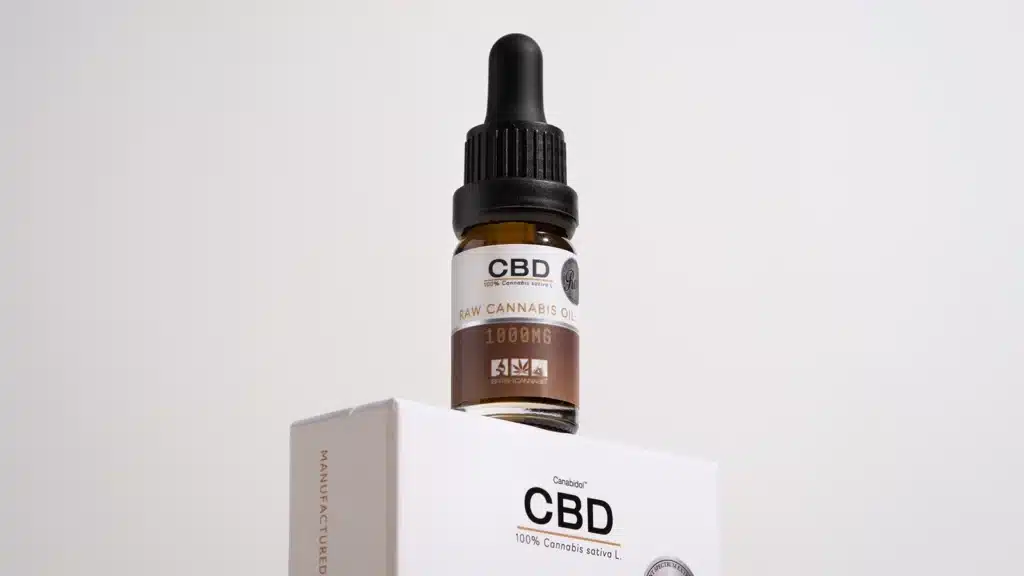

In today’s dynamic wellness landscape, one substance has garnered significant attention for its potential role in maintaining health and improving overall wellness. Cannabidiol, widely known as CBD, is a topic of growing interest in discussions surrounding respiratory health.
This article delves into the intriguing realm of “Cannabis Oil Benefits for Lungs,” exploring the complexities of CBD, its potential impact on Chronic Obstructive Pulmonary Disease (COPD), and essential considerations for those contemplating its use. However, the path toward utilizing CBD for respiratory health is not without its complexities and considerations.
Cannabis Oil Benefits for Lungs
We will navigate these nuances, providing essential guidance for those who contemplate integrating CBD into their wellness routines. Before embarking on this journey, it is crucial to underscore the importance of informed decisions, in consultation with healthcare professionals, to ensure the most beneficial and safe approach.
Join us as we embark on this exploration into the potential benefits of cannabis oil for the lungs, striving to unravel the mysteries, understand the science, and empower individuals to make informed choices for their respiratory well-being. The world of CBD and its potential contributions to respiratory health awaits your discovery.
Unraveling the Potential of CBD
CBD, short for cannabidiol, stands as a remarkable contrast to its close relative, tetrahydrocannabinol (THC). While both compounds hail from the same cannabis plant, their effects on the human body couldn’t be more different.
CBD is non-psychoactive, meaning it doesn’t induce the mind-altering “high” that has long been associated with marijuana use, making it an attractive option for those seeking therapeutic benefits without the euphoria.
- CBD Legal Status
CBD is legal in the UK, provided it comes from industrial hemp strains that contain no more than 0.2% THC (tetrahydrocannabinol). THC is the psychoactive compound found in cannabis. CBD products must also adhere to quality and labelling standards.
- Novel Food Regulations
In January 2019, the European Commission classified CBD as a “novel food,” requiring businesses to obtain authorization before marketing CBD products. This process involves safety assessments and can be costly and time-consuming.
- Exploratory Use Beyond Epilepsy
The recognition of CBD as a potential remedy for epilepsy is just the tip of the iceberg. Beyond epilepsy, individuals are increasingly turning to CBD as a natural aid for various health concerns.
In recent years, there has been a surge of interest in the potential benefits of CBD for respiratory health. While this topic is still in its infancy compared to CBD’s more established applications, it has generated significant enthusiasm and curiosity.
This interest stems from the observation that CBD may possess properties that could alleviate symptoms associated with respiratory disorders, such as inflammation and bronchial constriction.
As we delve deeper into this exploration of CBD’s potential for respiratory health, we will examine the growing body of research and anecdotal evidence that sheds light on how CBD might positively impact lung function, alleviate discomfort, and offer hope to those dealing with respiratory challenges.

Investigating the CBD-COPD Connection
- Lack of Definitive Evidence: It’s important to note that conclusive research regarding the relationship between CBD and COPD remains somewhat elusive.
- Historical Anecdotes: Throughout history, there have been anecdotes suggesting that marijuana, a plant source of CBD, might have a positive impact on airway function, but these claims remain anecdotal.
- Laboratory Insights: Studies conducted in controlled environments have suggested that CBD might possess anti-inflammatory properties, hinting at its potential to address COPD-related inflammation.
- Mixed Research Outcomes: However, it’s crucial to highlight that studies exploring the direct effects of CBD on respiratory function have yielded mixed results, underscoring the complexity of this subject.
Prudent Steps to Consider
- Consultation is Key: Before considering CBD for wellness purposes, consulting with a healthcare professional is highly recommended, especially for individuals with pre-existing medical conditions.
- Consider Edible Options: If deemed appropriate, edible CBD products may be preferred for those seeking to explore its potential respiratory benefits, as they are less likely to cause lung irritation.
- Select Trusted Sources: When contemplating CBD products, choose reputable sources such as CBD by British Cannabis to ensure quality and consistency.
- Dosage Deliberation: Initiating CBD therapy should involve careful consideration of dosage and timeframes for potential benefits, a decision best guided by healthcare providers.
CBD by British Cannabis
CBD by BRITISH CANNABIS has firmly established itself as the premier choice for individuals seeking high-quality cannabis oil products. With a commitment to excellence, innovation, and transparency, this company has carved out a reputation that stands head and shoulders above the competition.
Transparency is at the heart of CBD by BRITISH CANNABIS’s ethos. They understand that customers deserve to know exactly what they are putting into their bodies.
That’s why they provide detailed information about their products, including comprehensive lab reports for their products.
When you choose CBD by BRITISH CANNABIS, you’re not just buying a product; you’re investing in your health and well-being. Their commitment to quality, transparency, innovation, and customer satisfaction makes them the best choice for those seeking top-notch cannabis oil products.
Join the countless individuals who have experienced the transformative power of CBD by BRITISH CANNABIS and embark on your own journey to a healthier, happier life.

In Conclusion
In conclusion, the potential benefits of cannabis oil, particularly CBD, in the context of respiratory wellness are intriguing but not yet conclusively established. The research into CBD’s effects on conditions like COPD is an ongoing and evolving field, and there is still much to learn.
For individuals considering the use of CBD for respiratory health, it is paramount to exercise caution and approach the matter with a sense of realism. Consulting with a healthcare professional who can provide personalized guidance based on your specific health needs and concerns is a wise first step.
Exploring alternative consumption methods, such as edibles, may be a safer option for those worried about the potential risks associated with inhaling any substances into the lungs. This approach minimizes potential harm to respiratory health.
Lastly, selecting reliable and reputable sources for CBD products is crucial. The quality and purity of CBD products can vary significantly between manufacturers.
Look for products that provide detailed information about their sourcing, extraction methods, and third-party testing to ensure you are getting a product that meets safety and quality standards.
For more insights on wellness and CBD, feel free to explore our other blogs:
- Cannabis Oil: Legal Perspectives
- Demystifying Cannabis Oil’s Drug Classification in the UK
- Understanding the Essence of Cannabis Oil
- Will Hemp Oil Make You Sleepy?
- Unlocking the Benefits of Cannabis Oil for Hair
- Can Cannabis Oil Cause Stomach Discomfort?
Explore, learn, and make informed choices for your well-being. Your respiratory health deserves careful consideration.
Share with
Don't miss any update
Sign up to get all the latest tips, news and promo from CBD by BRITISH CANNABIS™ delivered right to you.
Recent post
Don't miss any update
Sign up to get all the latest tips, news and promo from CBD by BRITISH CANNABIS™ delivered right to you.







